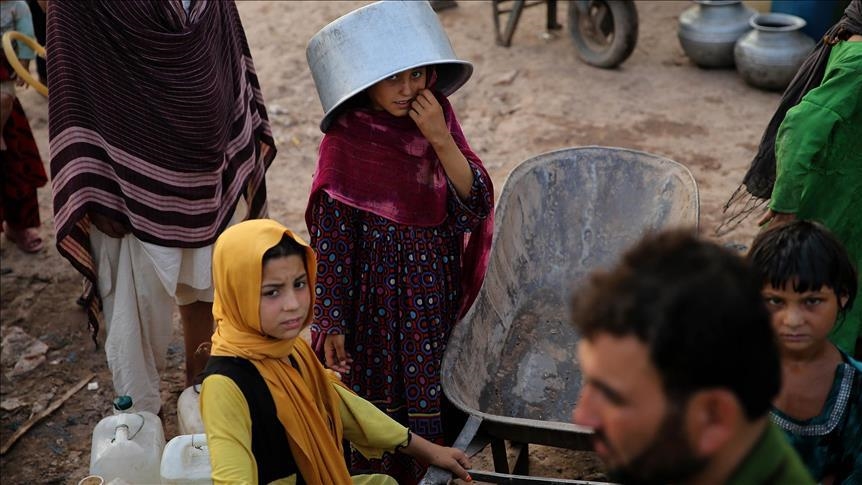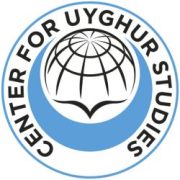
By Memet Tohti Atawulla*
Pakistan has announced a decision in early October, stating that undocumented migrants in Pakistan must leave the country by November 1, or they will be deported. With this decision,Uyghurs in Pakistan are also facing the threat of deportation to China.
According to the orders of the Pakistani government, anyone found residing in the country without proper documents will be arrested and sent to deportation centers. This deportation policy of Pakistan has impacted Uyghur expatriates living in the country. These Uyghurs who have been residing in Pakistan for a long time are now facing the risk of deportation by Pakistani police.
The sudden decision of the Pakistani government regarding illegal migration is not only a warning for approximately 1.7 million Afghans living in Pakistan but also a serious risk for the Uyghurs who have long been living in the country without Chinese passports and without obtaining residency permits from Pakistani authorities.
Violation of The Non-Refoulement Principle
Pakistan has signed a tripartite agreement with Afghanistan and UNHCR under which it will cooperate with UNHCR to guarantee the safety and safe return of Afghan refugees. The Pakistani government’s actions could technically be understood as a violation of the principle of non-refoulement, which prohibits states from deporting refugees.
Although Pakistan has not signed the 1951 Convention relating to the Status of Refugees and the 1967 Protocol relating to the Status of Refugees, this provision is applicable to non-signatory states. The non-refoulement principle will be applied regardless of Pakistan’s signature on these conventions.
Despite having visas and registration evidence, thousands of Afghans have been detained. Refugees face various forms of harassment: for example, the decision to deport refugees at the beginning of the winter putting them in a difficult situation; the police demanding bribes to release those with valid residence documents; intentional delays in the visa issuance process by Pakistani authorities, creating difficulties in opening bank accounts and finding rental housing, exposing refugees to exploitation etc.
Uyghurs Who Migrated from Afghanistan to Pakistan
Some Uyghurs who had previously fled from Communist China to Afghanistan migrated from there to the Dhok Hassu region of Rawalpindi, Pakistan, due to the Soviet Union’s invasion of Afghanistan. Currently, around 100 Uyghurs from 20 families reside in this region. These Uyghurs have become targets of the Pakistani government’s illegal migration operation starting on November 1 because they could not yet obtained passports, IDs, or legal documents from Pakistani authorities.
Pakistani Police Arrested an Uyghur
According to Radio Free Asia (RFA), as of midnight on October 31, Pakistani authorities began raiding homes suddenly to investigate illegal migrants. An Uyghur named Amanullah, residing in Rawalpindi, was arrested during the police raids targeting illegal migrants.
Ömer Uyghur, who living in Rawalpindi, stated in an interview with RFA that he is one of the Uyghurs who migrated first to Afghanistan and then to Pakistan, struggling to survive in this country. Ömer Uyghur mentioned that the police officially initiated pressure on illegal migrants by conducting searches in homes. He reported that some Uyghurs have been threatened by the police over the last two days. Ömer also stated that they have been trying to contact Pakistani authorities in Rawalpindi regarding the matter but have not received a response.
Deportation of Uyghurs Had Been Raised Before
The Uyghur refugees living in Pakistan were threatened by Pakistani police authorities with deportation to China unless they renewed their UN refugee cards. It was not clear why Pakistani police were threatening these Uyghur families or why local UNHCR offices had stopped renewing refugee cards.
As a predominantly Muslim country, Pakistan should have sympathized with Muslim Uyghurs. However, Pakistani authorities came under pressure from Beijing due to the China-Pakistan Economic Corridor, a massive project aimed at improving Pakistan’s infrastructure for better trade with China and greater integration of regional countries, as a part of the Belt and Road Initiative. The government, being an ally of China, supports Beijing’s policies, including the Uyghur genocide.
*Memet Tohti Atawulla is the Senior Program Officer at Center for Uyghur Studies
Copyright Center for Uyghur Studies - All Rights Reserved
